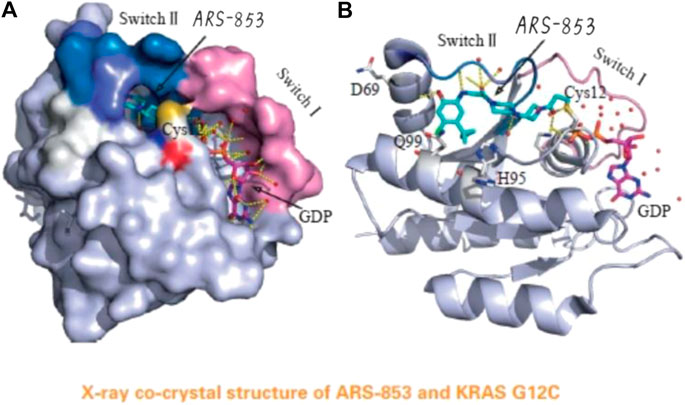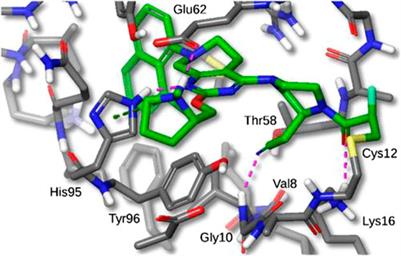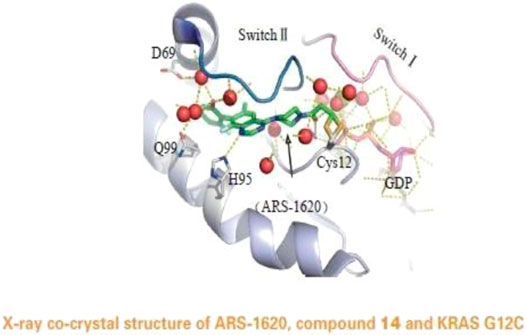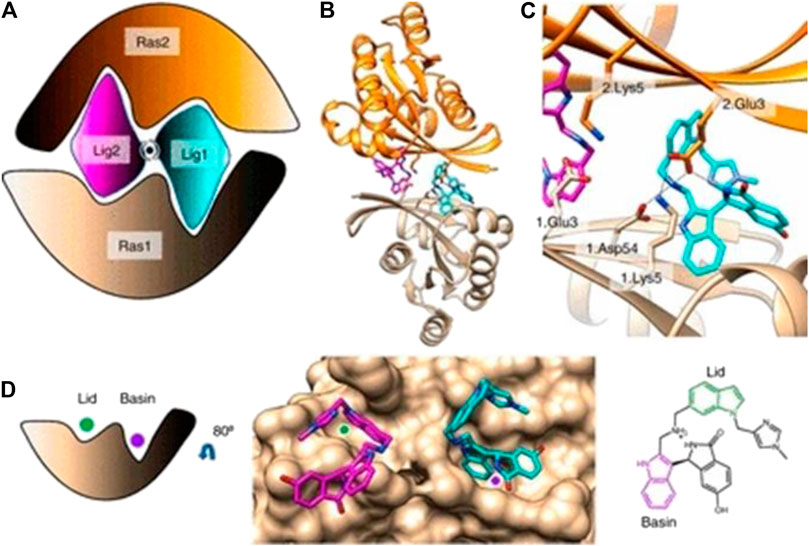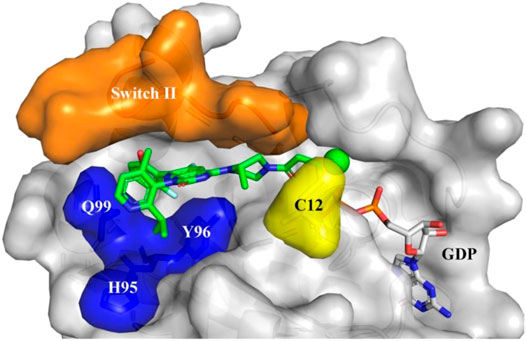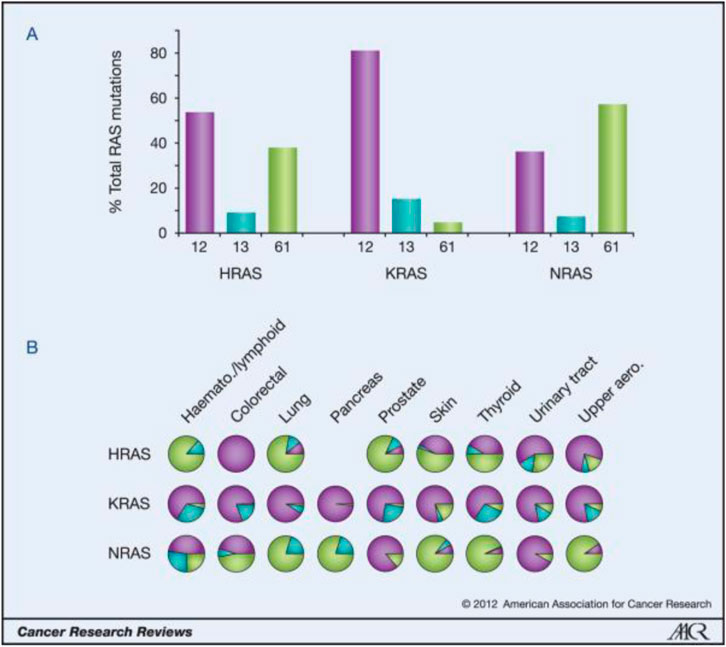Investing in the healthcare sector is not only about financial gain, but also about supporting groundbreaking research and development that can revolutionize patient care. One area that has recently garnered significant attention is the targeting of the KRAS G12C mutation in cancer treatment.
In this article, we will explore Roche’s innovative approach to tackling this mutation and its potential implications for both patients and investors.
Understanding the KRAS G12C Mutation
The KRAS gene, a crucial component of cell signaling pathways that regulate cell growth and division, plays a pivotal role in maintaining the balance of cellular processes. However, when mutations occur in this gene, particularly at position G12C, it can have profound implications for human health.
This specific mutation is one of the most common genetic alterations found in cancer patients, particularly those with lung adenocarcinoma.
For years, the KRAS G12C mutation has presented a formidable challenge in cancer treatment due to its complex structure and lack of binding sites for traditional targeted therapies. In fact, it was commonly referred to as “undruggable” until recent advancements.
This mutation results in uncontrolled cell proliferation, contributing to tumor growth and development.
Studies have shed light on the significant impact of the KRAS G12C mutation in cancer development. Research has shown that this specific genetic alteration drives tumor growth and can promote metastasis – the spread of cancer cells to other parts of the body.
Additionally, tumors harboring this mutation often exhibit resistance to certain treatments, making them more difficult to manage effectively.
Addressing the challenges posed by the KRAS G12C mutation is crucial for developing effective therapeutic strategies against various types of cancers. Recent breakthroughs have led to novel approaches aimed at inhibiting this mutated protein, offering new hope for patients battling these aggressive forms of cancer.
Roche’s Groundbreaking Approach to Targeting KRAS G12C
Roche, a renowned pharmaceutical company recognized for its innovative therapies, has taken on the formidable challenge of addressing the complexities associated with the KRAS G12C mutation. This groundbreaking effort entails an ambitious research program aimed at developing a drug specifically engineered to target this particular mutation.
Past endeavors to develop drugs targeting KRAS have encountered significant hurdles. The unique structure of the protein, combined with its strong affinity for nucleotides, has posed considerable obstacles in designing effective inhibitors. However, recent advancements in technology and understanding have paved the way for novel approaches.
Roche’s approach revolves around the meticulous design of small molecules that selectively bind to the mutated KRAS G12C protein. By effectively blocking its activity and inhibiting tumor growth, this breakthrough strategy offers hope for patients who were previously left with limited treatment options.
The key focus of Roche’s research lies in exploiting the distinctive characteristics of the KRAS G12C mutation. This specific mutation results in a change within the KRAS protein, leading to uncontrolled cell growth and proliferation.
Roche’s innovative approach aims to capitalize on this vulnerability by creating targeted therapies that directly interfere with the mutated protein’s function.
To achieve this, Roche employs state-of-the-art techniques such as computer-aided drug design and high-throughput screening. These cutting-edge methods enable scientists to identify potential drug candidates that possess high affinity and specificity towards the mutant KRAS G12C protein.
By precisely targeting this specific mutation, Roche’s pioneering approach holds immense promise in personalized medicine. It offers new avenues for patients who would otherwise face limited treatment options due to their genetic makeup.
The Development and Clinical Trials of Amgen’s Sotorasib (AMG 510)
Amgen’s Sotorasib (AMG 510) is a groundbreaking drug designed to target the KRAS G12C mutation, a genetic alteration found in various cancers. Extensive preclinical studies showed its ability to inhibit tumor growth, leading to promising clinical trials.
As a monotherapy, Sotorasib demonstrated significant tumor shrinkage in patients with advanced solid tumors carrying the KRAS G12C mutation. Collaboration between Amgen and Roche further enhances research opportunities. This development offers hope for personalized cancer treatments based on individual genetic profiles.
Roche’s Entry into the Game: CodeBreaK100 Trial
Roche, a prominent pharmaceutical company, made a significant impact in the field of targeted therapies with its participation in the groundbreaking CodeBreaK100 trial. Partnering with Amgen, another leading biotechnology firm, Roche aimed to evaluate the safety and efficacy of Sotorasib, a potential treatment for patients with KRAS G12C mutations.
The collaboration between Roche and Amgen exemplifies the importance of partnership in advancing research and development efforts. By combining their respective expertise, resources, and knowledge, they have created a powerful synergy that accelerates the development of targeted therapies.
This collaboration not only highlights their commitment to improving patient outcomes but also underscores the significance of collective efforts in overcoming complex medical challenges.
Preliminary data from the CodeBreaK100 trial has unveiled promising results. The trial demonstrated a high overall response rate among patients treated with Sotorasib, reaffirming the potential efficacy of targeted therapies for individuals harboring the KRAS G12C mutation.
These findings provide hope for patients who previously had limited treatment options.
The success of the CodeBreaK100 trial signifies an important milestone in Roche’s entry into this field. By actively engaging in cutting-edge research and collaborating with industry leaders like Amgen, Roche is demonstrating its commitment to revolutionizing cancer treatment through innovative approaches.
The company’s dedication to exploring novel therapeutic avenues showcases its relentless pursuit of improved patient care.
Emerging Competitors in the Field
Roche’s groundbreaking efforts in targeting the KRAS G12C mutation have sparked interest among other pharmaceutical companies. Mirati Therapeutics and Boehringer Ingelheim are actively pursuing novel therapies, focusing on small molecules and antibody-drug conjugates, respectively.
Additionally, Amgen’s Sotorasib (AMG 510) has shown promise in clinical trials. Each approach brings unique advantages and challenges, showcasing the diverse strategies being explored to combat this mutation.
This increased competition signifies the growing recognition of the potential for effective treatment options in targeting KRAS G12C mutation.
Potential Implications for Cancer Treatment and Investors
The development of targeted therapies for patients with KRAS G12C mutations holds great promise for improving cancer treatment outcomes. By directly addressing the underlying genetic alteration driving tumor growth, these therapies have the potential to revolutionize cancer care.
Investing in companies at the forefront of KRAS G12C research presents an opportunity for financial gain and supporting innovative treatments. However, investors should consider the inherent risks in the biopharmaceutical industry, including regulatory hurdles, clinical trial outcomes, and competition.
Overall, targeted therapies for KRAS G12C mutations offer significant potential benefits for both patients and investors.
VII: Conclusion
Roche’s pioneering approach in targeting the KRAS G12C mutation has propelled significant advancements in cancer therapy. With promising clinical trial results and emerging competitors, targeted therapies offer hope for patients and exciting investment opportunities.
By investing wisely, we support innovation and improve patient outcomes in the fight against cancer.
[lyte id=’U02L_38jpKE’]
